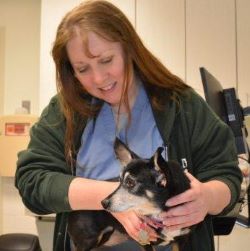GDV - WHAT WE KNOW, AND WHAT WE WISH WE KNEW!

Gastric dilatation and volvulus (GDV), or bloat, is a common condition in large and giant breed dogs with an unacceptably high morbidity and mortality rate. Due to the importance of GDV in many dog breeds, several previous studies have investigated potential risk factors for the development of GDV. It is known that there is no single cause for GDV, rather its occurrence is multifactorial, with both genetic and environmental factors contributing to the condition. Understanding what causes GDV allows us to intervene to prevent the disease from occurring.
Join us in this webinar in which Dr. Rozanski will provide updates on our current knowledge and understanding about GDV in dogs. Her discussion will include:
-
What is known about the genetic aspects of GDV
-
The pathophysiology and treatment of GDV
-
Why some dogs who develop GDV do poorly
-
Preventative measures including surgical gastropexy
-
Our current challenges with GDV in dogs, ongoing research efforts, and possible targets
Original Air Date: March 24, 2021
Speaker: Elizabeth Rozanski, DVM, DACVIM (SAIM), DACVECC
Learn more about Dr. Rozanski’s CHF-funded research:
01937-B: Evaluating the Complex Genetic Basis of Bloat
Related Articles
- Progress Treating Parvo (04/10/2024)
- Genetic Test for Megaesophagus in German Shepherd Dogs (05/16/2022)
- Gut Microbiome Recovery in IBD (08/27/2021)
Help Future Generations of Dogs
Participate in canine health research by providing samples or by enrolling in a clinical trial. Samples are needed from healthy dogs and dogs affected by specific diseases.



